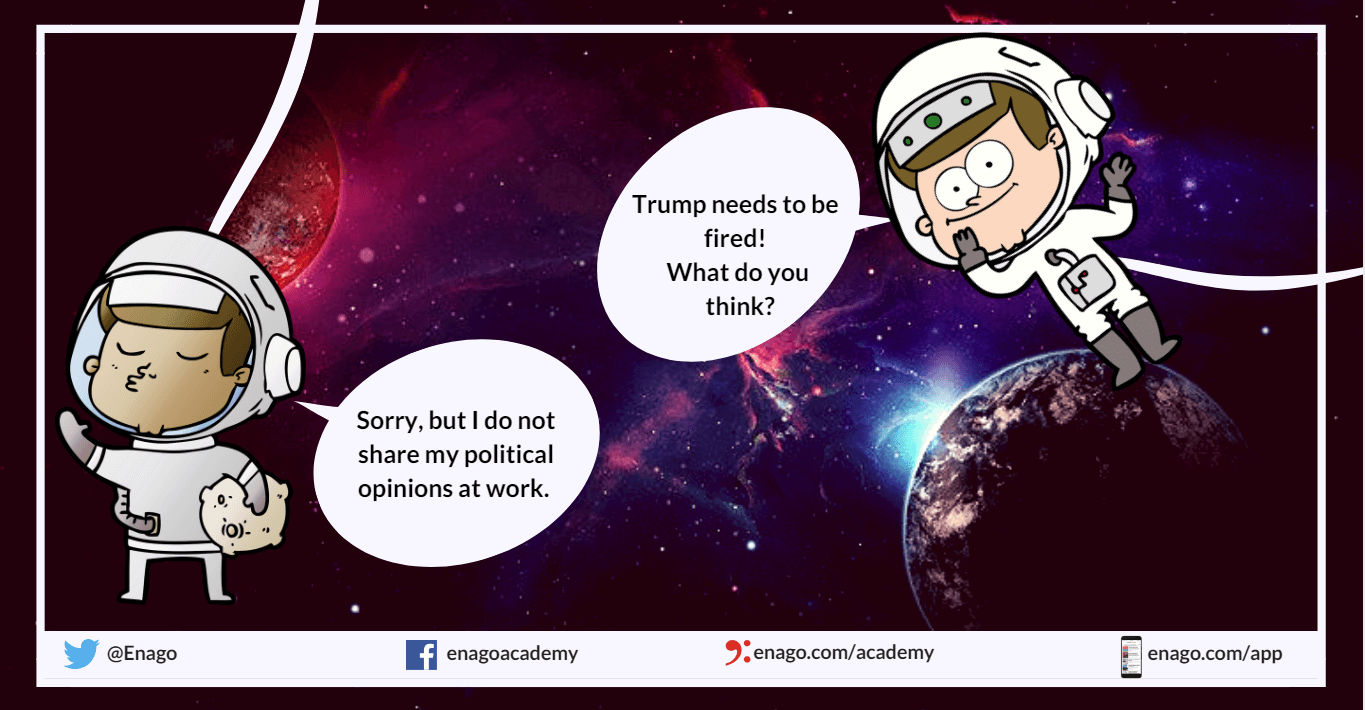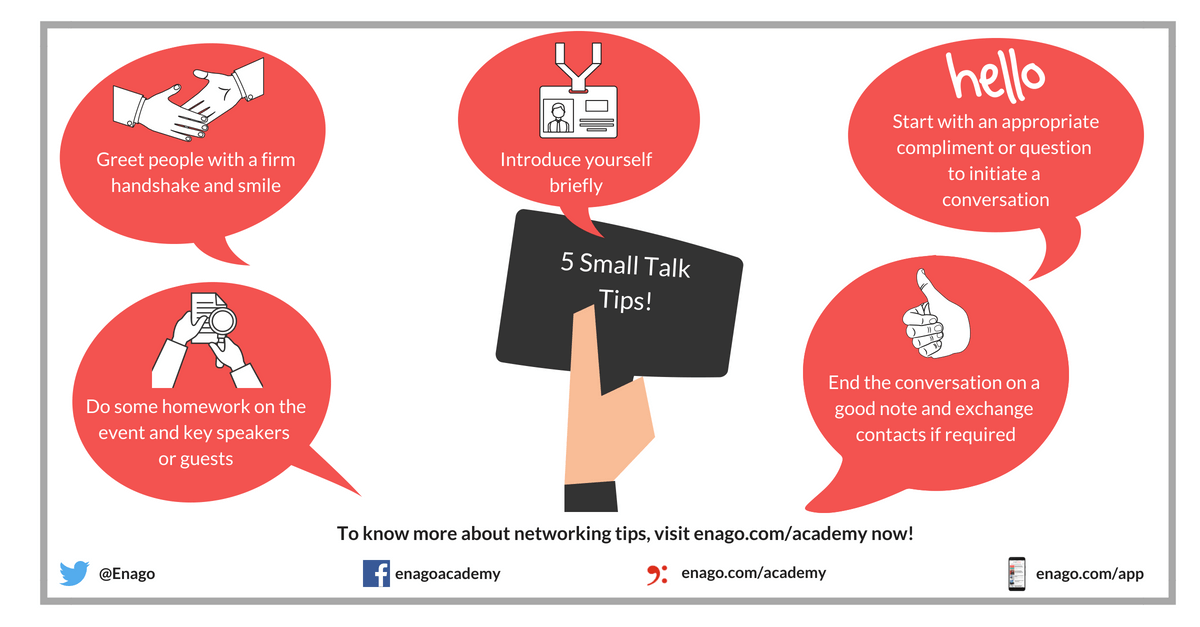Top 10 Tips for Effective Small Talk

Have you ever had awkward encounters or embarrassing conversations at an event or conference? You are not alone! Researchers often face communication challenges when talking with strangers or even with their lab colleagues. People engage in small talks inside offices, laboratories, university premises, elevators, airports, and during workshops or conferences.
Participating in small talks can be difficult and even challenging for many. However, by learning a few practical tips, you can make this a positive experience for yourself and others. Effective small talk can help you know people and build a network for future opportunities and collaborations.

Practical Tips for Engaging in Small Talk
Imagine, you are at a conference or an official banquet with a new colleague. So, how do you initiate the conversation and how do you end it? Follow these simple rules to succeed in small talks!
- Do some background work: Familiarize yourself with the event theme, topics, key speakers, key guests, etc. to keep your conversation up-to-date and engaging.
- Greet pleasantly: Be welcoming and pleasant in your greetings. Make firm handshakes and make it a point to smile when you greet someone.
- Keep your introduction brief: Keep your introduction concise. Most importantly, when introducing others to the group, make sure not to use wrong names.
- Listen more: Pay more attention to the person you are talking to. Show genuine interest and let the conversation flow!
- Ask questions: Focus on the other person and ask meaningful questions. If you are out of words, you can discuss about the conference or event too!
See the following questions.
How are your doing?
How did you get interested in this field?
Do you know the keynote speaker?
Have you attended any event like this before?
How did you find today’s presentation/discussion?
- Keep conversations light and meaningful: Do not let ”yes/no” be your response for every question. Provide some relevant details, so that the other person can continue the conversation. Remember, do not overshare information! See the example below.
Question: How are you?
Answer: Very well, thank you. I am planning a vacation in Greece and looking forward to experiencing the European summer. By the way, I just bought a new car last week.
- Avoid sensitive topics: Avoid any conversation related to politics, religion, gossips, controversies, personal questions, etc., as this may lead to uncomfortable situations. You can discuss general topics (e.g., something related to movies, sports, food, travel, books, hobbies, weather, etc.) Avoid lengthy discussions on eating habits or health-related issues of a personal nature.
- Gauge people’s response and body language: When making conversations, be empathetic and respond appropriately. Moreover, get cues on whether the other person is interested in talking.
- End the conversation on a good note: You need to interact with other people too (never keep talking to the same person all the time, especially during gatherings or other events! The person may get bored). End your conversation on a pleasant note and move on to the next person. See the example below.
I have to leave in a few minutes, but I would love to know more about…..
I need to get some water, but before I go I would like to learn more about…
It has been great talking to you. I really enjoyed knowing about…
- Learn from your experience: As you meet new people, keep a note of your experiences—good and bad. Learn from your mistakes!

Meeting new people and discussing in a group may not be your favorite way to spend time or network. However, if you follow these simple tips, you can overcome your fears and anxiety and start enjoying such conversations!
Did you participate in a small talk recently? What are your favorite topics for small talks? Share your experience in the comments section below!








Was really helpful